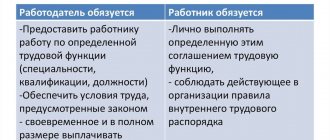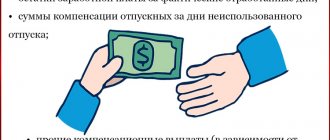The Labor Code has been supplemented with a new chapter. 50.1. It is devoted to the peculiarities of labor relations on the territory of the Russian Federation with foreign citizens and stateless persons. In this article we will tell you what you now need to pay attention to when concluding employment contracts with this category of workers.
Amendments to the Labor Code were introduced by Federal Law dated December 1, 2014 N 409-FZ. It came into force on December 13, 2014.
Despite the fact that now labor relations on the territory of the Russian Federation with all categories of workers are regulated by a single regulatory act, certain features and restrictions have been established in relation to foreign workers.
The right to give a job to a foreigner
Not all employers have the right to enter into employment contracts with foreign workers.
Employers who are expressly prohibited from doing so by law (part 4 of article 327.1 of the Labor Code of the Russian Federation) cannot hire foreigners. For example, an employer does not have the right to attract foreign workers as highly qualified specialists to provide sales services to customers in the retail trade of consumer goods (including pharmaceutical products). An exception is provided only for employees who manage and coordinate activities related to trade (clause 1.3 of Article 13.2 of Law No. 115-FZ).
Civil contract: differences from labor contract
According to Art. 13 Federal Law No. 115 it is allowed to draw up a civil contract with migrants. According to this document, a person implements a project or provides various services. An example would be hiring a nanny for one year.
Most often, such a civil contract is represented by a work contract. Civil contracts are drawn up with foreign citizens to save money through specific taxation. There will be no need to pay insurance payments for the service and labor of foreigners under these contracts. Additionally, there is no need to offer employees vacation or social benefits. But there is no limit regarding salary. A civil agency contract is suitable for auxiliary workers or construction workers.
General list of documents
Like any employee, a foreigner must present to the employer the documents specified in Part 1 of Art. 65 Labor Code:
— passport or other identification document;
— work record book (except for cases when an employment contract is concluded for the first time or an employee starts working on a part-time basis);
— insurance certificate of compulsory pension insurance of the Russian Federation (SNILS);
- a document on education (qualifications or special knowledge), if required by the job;
— a certificate confirming the presence (absence) of a criminal record and (or) the fact of criminal prosecution or the termination of criminal prosecution on rehabilitative grounds, if required by this type of work activity. For example, persons who have or have had a criminal record or have been subject to criminal prosecution are not allowed to engage in teaching activities.
Note. The form and procedure for issuing a certificate are provided for by the Administrative Regulations of the Ministry of Internal Affairs of Russia, approved by Order of the Ministry of Internal Affairs of Russia dated November 7, 2011 N 1121.
When concluding an employment contract for the first time, the employer issues a work book and an insurance certificate of compulsory pension insurance for a foreign worker (Part 4 of Article 65 of the Labor Code of the Russian Federation).
How is the employment of foreigners processed?
The procedure for employing foreigners in Russia is made dependent on the status of a citizen of a foreign state. Thus, the procedure for employing migrants permanently or temporarily residing in Russia is identical to the procedure for employing Russians. Therefore, an employment contract between a foreign citizen temporarily residing in the Russian Federation and a private individual or company can be concluded without any additional permits or patents. But at the same time, within three days after formalizing a relationship with a foreigner, the employer must inform the migration authorities about this.
Read more information about.
Anyone who does not have such documents is considered a migrant temporarily staying in the Russian Federation. The procedure for their employment depends on their country of origin. So, if a visa regime is established with it, then it is impossible to do without obtaining permission, sending an invitation and many other requests.
If visa-free, it is enough to conclude an employment contract between an individual and a visa-free foreign citizen under a patent in 2019.
Find out in more detail how to apply.
Specific documents from a foreigner
In addition to the documents listed above, when concluding an employment contract, a foreign worker must present to the employer the documents specified in Part 1 of Art. 327.3 of the Labor Code.
VHI contract or policy. A VHI agreement (policy) valid on the territory of the Russian Federation must be presented by temporarily staying foreigner when concluding an employment contract. A foreign employee may not submit such an agreement (policy) if the employer enters into an agreement with a medical organization, on the basis of which this employee will be provided with a minimum of:
— primary health care;
— emergency specialized medical care.
Work permit or patent. When concluding an employment contract, one of these documents must be presented by temporarily staying foreigner.
Note. To control the migration status of a temporarily staying foreigner and the purpose of his visit to the Russian Federation for employment, the employer has the right to ask him to present a migration card.
Please note: a foreign worker has the right to present a work permit to the employer even after the parties have concluded an employment contract (Part 2 of Article 327.3 of the Labor Code of the Russian Federation).
For example, an employment contract, along with other documents, must be submitted by the employer to the Federal Migration Service of Russia in order to issue a work permit to a highly qualified specialist (Clause 6, Article 13.2 of Law No. 115-FZ). In this situation, the employment contract comes into force no earlier than the day the foreign citizen receives a work permit.
Information about the received work permit is entered into the employment contract in the manner prescribed by Part 3 of Art. 57 Labor Code.
Note. A work permit is a document confirming the right of a foreign citizen who arrived in the Russian Federation in a manner requiring a visa , and other categories of foreign citizens in cases provided for by Law No. 115-FZ, to temporarily carry out labor activities on the territory of Russia.
A patent is a document confirming the right of a foreign citizen who arrived in the Russian Federation in a manner that does not require a visa (with the exception of certain categories of foreign citizens in cases provided for by Law No. 115-FZ) to temporarily carry out labor activities on the territory of a constituent entity of the Russian Federation.
Foreign citizens permanently and temporarily residing temporary asylum in the territory of the Russian Federation, as well as other categories of foreign citizens listed in paragraphs. 1 - 12 p. 4 tbsp. 13 of Law N 115-FZ, are not required to submit a work permit or patent. They do not require these documents to work in the Russian Federation.
A temporary residence permit in the Russian Federation must be provided temporarily residing in Russia when concluding an employment contract.
A residence permit is required when concluding an employment contract with permanently residing in Russia.
No military ID required. As a general rule, when concluding an employment contract, a foreign worker does not present military registration documents to the employer. The exception is cases provided for by federal laws or international treaties of the Russian Federation, decrees of the President of the Russian Federation, decrees of the Government of the Russian Federation (Part 3 of Article 327.3 of the Labor Code of the Russian Federation).
Does foreign citizen status matter?
Expert opinion
Kurtov Mikhail Sergeevich
Practitioner lawyer with 15 years of experience. Specializes in civil and family law. Author of dozens of articles on legal topics.
Over the past few years, Russia has been one of the top three countries with the largest number of foreigners. Many of them go to other countries in search of good jobs.
One of the attractive places for employment is Russia. Therefore, it is important for employers to find out in advance what nuances exist when hiring this category of citizens.
It is impossible to refuse employment because of another citizenship if all his documents are in order. Moreover, both individual entrepreneurs and organizations can employ a foreigner.
The most important thing is to draw up the employment contract correctly . And the nuances of its preparation depend on the basis on which the foreigner is in Russia and what status he has. There are several options here:
- temporary stay;
- temporary residence;
- permanent residence.
Additionally, you need to take into account that Russia’s relations with different countries are not always the same. Thus, people from some CIS countries come without a visa and get a job in a simplified manner. Others require a special visa and additional conditions to be employed.
The conclusion of an employment contract in these two cases will be very different. The presence of special restrictions additionally obliges the employer to take into account the presence of work quotas and other features.
By the way, citizens from the countries of the Eurasian Economic Union have their own employment procedure. The conclusion of an employment contract with them occurs in accordance with the main article 50.1 of the Labor Code of the Russian Federation.
This is important to know: Calculation of penalties under a contract: penalty calculator
Permits depending on the migration status of foreigners
| Migration status of a foreigner | Permit document |
| Temporarily staying | Work permit or patent |
| Temporary resident | Temporary residence permit in the Russian Federation |
| Permanent resident | Residence permit in the Russian Federation |
The employment contract must include information about the permit document. In this case, it is advisable to indicate the following information:
— the name of the permit document, for example, a work permit (for a temporarily staying visa-free foreigner), a patent (for a temporarily staying visa-free foreigner);
— series and number of the document;
— date of issue and validity period of the document;
- information about the territorial division of the Federal Migration Service of Russia that issued the document, for example, the Office of the Federal Migration Service of Russia for Moscow or the Office of the Federal Migration Service of Russia for St. Petersburg and the Leningrad Region.
If you have a residence permit or temporary residence permit
An employment contract with a temporary residence permit (TRP) or residence permit (RP) is drawn up in the usual manner, i.e., exactly the same as with Russians. The only important thing is:
- check when the permit expires (an employment contract is drawn up for the same period; after the document expires, the relationship with the employee is extended if the temporary residence permit/residence permit is extended);
- notify the migration service that a foreigner has been hired - 3 days are given for this.
Such a simplified procedure for hiring is possible without a residence permit or temporary residence permit, if we are talking about the employment of citizens from the EAEU countries. This list includes Armenia, Belarus, Kazakhstan, Kyrgyzstan.
When drawing up an employment contract with them, you do not need to clarify the availability of permits - they are not required. Such citizens can enjoy the same social benefits as Russians.
Quotas in various sectors of the economy do not apply to them either (they are not needed).
Citizens coming from the EAEU countries will not have to confirm their level of education, since their higher education diplomas are valid in Russia. The only thing that is required is to translate the diploma into Russian and have it certified by a notary.
Duration of the employment contract with a temporarily staying foreigner
In Part 5 of Art. 327.1 of the Labor Code now directly states that an employment contract is concluded with a foreign worker for indefinite period.
A fixed-term employment contract with a foreigner can be concluded only if there are general grounds provided for in Art. 59 of the Labor Code.
Note. This rule applies to all foreign workers.
Note. Before signing an employment contract
In general, before concluding an employment contract, a foreigner must be familiarized, against signature, with the internal labor regulations, other local regulations directly related to the employee’s work activity, and the collective agreement (if any) (Part 3 of Article 68 of the Labor Code of the Russian Federation).
This provision of the Labor Code should put an end to disputes about how long employers should enter into employment contracts with foreigners.
OTHER CONDITIONS
7.1. This Employment Agreement is drawn up in two copies (one for each party) and comes into force from the moment the administration issues an order appointing the Employee to the position specified in clause 1.
[place of conclusion of the contract] [date of conclusion of the contract]
[Full name of the employer] represented by [position, full name], acting on the basis of the [Charter, Regulations, Power of Attorney], hereinafter referred to as the “Employer,” on the one hand, and
Citizen(s) [name of state, republic, etc.] [F. I. O. employee], hereinafter referred to as the “Employee”, on the other hand, and together referred to as the “Parties”, have entered into this agreement as follows:
1.1. Under this employment contract, the Employee undertakes to perform duties in the profession of [full name of profession] at [place of work indicating a separate structural unit and its location], and the Employer undertakes to provide the Employee with the necessary working conditions provided for by labor legislation, as well as timely and full payment of wages .
1.2. The employment contract is concluded for the period of validity of the Work Permit series [fill in as required] number [fill in as needed] issued to the Employee.
1.3. The employee must begin work on [day, month, year].
1.4. The probationary period for employment is [period].
1.5. Working for the Employer is the Employee’s [main or part-time] place of work.
- providing him with work stipulated by this agreement;
— payment of wages in the amount and in the manner provided for in this agreement;
— complete reliable information about working conditions and labor protection requirements;
— protection of one’s labor rights, freedoms and legitimate interests by all means not prohibited by law;
- compensation for harm caused to him in connection with the performance of his job duties, and compensation for moral damage in the manner established by the Labor Code of the Russian Federation and other federal laws;
— conscientiously fulfill their labor duties;
This is important to know: Minimum wage in 2021
- treat the property of the Employer and other employees with care.
— encourage the Employee for conscientious, effective work;
— demand from the Employee the performance of labor duties and careful attitude towards the property of the Employer and other employees, compliance with labor discipline;
Expert opinion
Kurtov Mikhail Sergeevich
Practitioner lawyer with 15 years of experience. Specializes in civil and family law. Author of dozens of articles on legal topics.
— bring the Employee to disciplinary and financial liability in the manner established by the Labor Code and other federal laws;
— comply with labor legislation and other regulatory legal acts containing labor law norms, local regulations, terms of the collective agreement, agreements and employment contracts;
— provide the Employee with work stipulated by this agreement;
— ensure safety and working conditions that comply with state regulatory requirements for labor protection;
— provide the Employee with equipment, tools, technical documentation and other means necessary to perform his job duties;
— pay the full amount of wages due to the Employee within the time limits established by this agreement;
— familiarize the Employee, against signature, with the adopted local regulations directly related to his work activity;
— provide for the Employee’s everyday needs related to the performance of his job duties;
— carry out compulsory social insurance of the Employee in the manner established by federal laws;
— compensate for damage caused to the Employee in connection with the performance of his labor duties, as well as compensate for moral damage in the manner and under the conditions established by the current legislation of the Russian Federation.
2.5. The employee undertakes not to hold leadership positions in other commercial organizations.
2.6. The parties have other rights and perform other obligations provided for by current labor legislation.
3.1. The employee is assigned a [number of days]-day working week.
Work start time - [enter the required] hour, end time - [enter the required] hour, break - [enter the required] hour.
3.2. An employee may have an irregular working day.
3.3. The employee agrees to be involved in work at night, on weekends and non-working holidays in the manner prescribed by the collective agreement and local regulations.
— annual basic paid leave of 28 calendar days;
— annual additional paid leave of [number of days].
3.5. An employee may be granted leave without pay in accordance with current labor legislation.
4.1. The Employee's remuneration consists of the official salary and remuneration based on the results of the financial and economic activities of the enterprise.
4.2. The Employee's salary is set at [fill in what is required] rubles per month.
4.3. Remuneration (bonus) to an employee based on the results of the financial and economic activities of the enterprise is established in the manner and amount established by the collective agreement and local regulations.
4.4. When performing work at night, on weekends and on non-working holidays, the Employee is paid appropriate additional payments in the manner and amount established by the collective agreement and local regulations.
4.5. During the period of validity of this employment contract, the Employee is subject to all guarantees and compensation provided for by the current labor legislation of the Russian Federation.
5.1. In case of failure or improper performance by the Employee of his duties specified in this employment contract, violation of the labor legislation of the Russian Federation, as well as causing material damage to the Employer, he bears disciplinary, financial and other liability in accordance with the current legislation of the Russian Federation.
5.2. The Employer bears financial and other liability to the Employee in accordance with the current legislation of the Russian Federation.
6.1. Disputes between the Parties arising during the execution of this employment contract are considered in the manner established by the Labor Code of the Russian Federation and other federal laws.
6.2. In all other respects that are not provided for in this employment contract, the Parties are guided by the legislation of the Russian Federation governing labor relations.
6.3. The employment contract is concluded in writing, drawn up in two copies, each of which has equal legal force. All changes and additions to this employment contract are formalized by a bilateral written agreement.
6.4. This employment contract may be terminated on the grounds provided for by current labor legislation.
Permission to attract and use foreign workers [number, date]
[position of the person who signed the agreement] [signature] [F. AND ABOUT.]
Place of temporary stay: [enter as required]
Work permit for a foreigner: series [enter as required], number [enter as required]
Concluding an employment contract with a foreigner has its own characteristics, which the employer must be aware of in order not to violate the law and the rights of the hired employee. One of the main nuances is the need for such an employee to have a work permit in the Russian Federation.
Current position of the FMS: Law N 115-FZ does not regulate the issue of the duration of the employment contract
Some time ago, specialists from the Russian Federal Migration Service changed their point of view. In Letter No. MS-3/46033 dated October 22, 2013, they indicated that Law No. 115-FZ does not contain a special rule defining the term of an employment contract with a foreigner. Labor relations are regulated by the Labor Code. It is this normative act that should be followed when deciding on the duration of an employment contract with a foreign employee. Explanation of labor law norms is the competence of Rostrud (Article 356 of the Labor Code of the Russian Federation).
Basic conditions for hiring foreigners
Executing a contract with a foreigner is possible subject to the following standard rules:
- Only persons over 18 years old can be accepted;
- the individual has an official permit to reside and work in the Russian Federation;
- an employee can only be registered for the period specified in the patent or permit;
- the applicant has documents confirming his qualifications, as well as a photo of the required size;
- A notice of hiring an employee must be sent to the FMS within 3 days.
Foreigners cannot apply for some positions. They cannot be accepted into municipal service or as crew members on ships or aircraft.
Employment of highly qualified workers is carried out under special conditions. Such persons are highly qualified, and employers are obliged to pay them high salaries. They are often invited to work by company owners. This includes researchers, educators, academics or medical professionals. Such workers can obtain permission to work in the Russian Federation for 3 years. They can work in several regions of the country. Usually they are involved in various programs, and can also count on the guarantee of a Russian employer.
Important! If the owner of a company draws up an employment contract with a foreigner, then he is obliged to independently notify the FMS about the drawing up of this agreement within 3 days.
Sanctions for migrants for violating the contract
In addition to notification of the conclusion and termination of employment relations with a foreign citizen, the employer, guided by paragraphs. 7.8 clause 8 art. 18 Federal Law “On the Legal Status of Foreigners”, is obliged to report information to the migration authorities regarding:
- violation by a foreign worker of the terms of the contract or other agreement under which he carries out labor activities, as well as its early termination;
- unauthorized leaving by a foreign worker of his workplace or place of residence.
At the same time, according to Part 12 of Art. 32 of the Federal Law “On the Legal Status of Foreigners in the Russian Federation”, violation by a foreigner of the terms of such an agreement gives the migration authorities the right to cancel the issued work permit, if there is a request to do so from the employer or customer of services.
Notice to migration authorities
According to Part 8 of Art. 13 of the Federal Law “On the Legal Status of Foreigners in the Russian Federation”, when hiring and terminating a working relationship with a foreigner, within 3 days after this, the employer must report this to the migration authorities - the Main Directorate for Migration of the Ministry of Internal Affairs. The form of such notification is determined by Order of the Federal Migration Service No. 640 dated December 8, 2014.
In addition, the foreign citizen himself must provide a copy of the employment contract to the department of the successor to the FMS - the Main Directorate for Migration Affairs of the Ministry of Internal Affairs. However, migrants are required to report their employment within 2 months from the date of issuance of permits, providing relevant certificates and extracts. If these requirements are violated, in accordance with Part 4 of Art. 18.15 of the Administrative Code, a fine of 5 to 7 thousand rubles may be imposed on him.
The issue of notification when extending corporate relationships deserves special attention. Whether it is necessary to notify the Main Directorate for Migration Affairs of the Ministry of Internal Affairs about the extension of an employment contract with a migrant depends on the form of such extension. Such notification will be required in case of termination and entry into a new relationship.
You can see, .
Grounds for termination of the contract
Permanent contracts with foreigners are concluded extremely rarely, although theoretically this is possible. Therefore, the main reason for refusing further cooperation is the termination of the contract. If a person does not plan to live in Russia, he can return to his home country or renew the agreement. In addition, termination occurs on other grounds. In the case of foreign citizens, the issue is regulated by Article 327.6 of the Labor Code of the Russian Federation.
The reason for termination of the contract may be:
- Suspension or termination of a permit to hire foreign workers.
- Invalidation of a patent by federal laws or international treaty provisions.
- Termination of a residence permit, VHI policy or other document on the basis of which a citizen carries out his activities.
- Inability to provide a place with similar conditions after the expiration date.
It is important to know! The employee receives notice of termination of the contract from the employer in advance. This allows him to find another vacancy and transfer, and complete all the necessary documentation.
Specifics of the contract content
In exceptional cases, an employment contract with a non-resident may be drawn up in his native language. This is not a violation or contradiction of the law, but it will allow him to understand all the terms of the contract. The agreement is concluded in two copies for each of the parties; signatures are required on all sheets. The document must contain a note about where exactly the person came from and what specialty he was assigned.
There is no universal option. Each is compiled taking into account individual information and the specifics of the work.
Prerequisites
An employment contract between an individual or legal entity and a foreign citizen consists of traditional sections that contain general information about the parties, their responsibilities and rights, the amount of wages and the termination period. If the position involves testing of skills and experience, the agreement specifies a probationary period. Upon completion, the person is hired or fired. In addition, it is important not to forget to indicate the following points:
- Social guarantees. Compensation for sick leave, vacation and severance pay encourages employees to conscientiously complete assigned tasks.
- Working hours and rest periods. It is better to indicate the weekly schedule in as much detail as possible. In this case, the total working hours per week should not exceed 40 hours. One hour a day is allocated for nutritious meals and is not included in them. Once a year, an employee receives 28 days of vacation.
- Conditions for changing or suspending the contract. In addition to the general grounds, there are also specific ones in the case of foreigners. These include termination of a patent or work permit, residence permit, etc.
- Place of employment. The physical address of the enterprise or office where the foreigner will work.
- Labor function. It is not enough to simply indicate the position; direct responsibilities and assigned tasks must also be disclosed.
Advice! The peculiarity of an agreement with a foreign citizen is that it must list all the documents on the basis of which the person stays in the country and carries out his activities.
Additional terms
As additional conditions, the employment agreement often includes a clause on the need to maintain trade secrets or confidential information. Such persons are usually not allowed to access information of national importance. Non-disclosure applies not only to the period of work, but also for several years after termination of the contract. In addition, you can also include separate provisions on the employee’s responsibility in the event of a disciplinary offense.
Duration of the contract
It is not necessary to indicate the term of the employment contract with a foreign citizen in the document; the validity period is considered unlimited. But an indication of the time period is required if an employee is hired for seasonal work or temporarily. After its completion, there is no need to sign additional papers, since the contract will be considered automatically terminated. An entry about dismissal due to the end of a fixed-term contract is made in the work book according to the general rules.
Renewal of an employment contract with a foreign citizen is carried out according to general rules. This is permissible only after the person renews the documents allowing permanent residence and work in the country. An additional act is attached to the contract or a new agreement is drawn up at the discretion of the employer.
Terms of payment
The salary amount is determined depending on the position held by the foreign citizen and personal agreements with the employer. The salary cannot be lower than what Russians with the same level of qualifications receive at the enterprise. In addition to the stable part, bonuses, compensation payments, and incentives for achieving set goals are also possible.
Privileges for highly qualified personnel
Special conditions are provided in the employment contract with a foreign worker if he is a highly qualified specialist. This status guarantees benefits when applying for any position in Russian companies. Who is included in this category?
- Researchers and teachers invited for teaching activities in educational institutions that have state accreditation.
- Employees of research and scientific centers.
- Industrial or production specialists.
- Medical workers invited to work in private or public clinics.
- Foreign citizens participating in the implementation of the Skolkovo project.
The employer independently evaluates the competence and high qualifications of a non-resident, taking into account information about training and obtaining scientific titles and other regalia in the process of activity. Therefore, he bears full responsibility for the assessment results. A permit for this category of workers is issued for a period of up to 3 years, and there are no territorial restrictions on them.
Attention! In what cases it is impossible to attract highly qualified employees is determined by the list specified in Federal Law No. 155 (Article 13.2, Article 14).






